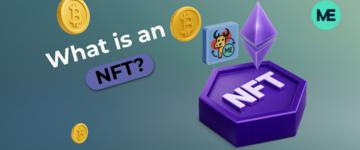Smart contracts are an innovative technology that changes the approach to concluding and executing contracts. Unlike traditional agreements, smart contracts automatically execute the terms of a transaction recorded in code, without the involvement of intermediaries. This ensures immutability, transparency and security, reducing costs and speeding up processes. The concept was first proposed by Nick Szabo in 1994, but smart contracts became widespread with the development of blockchain, especially after the launch of Ethereum in 2015 (Ethereum Smart Contracts).
Smart contract in simple words
A smart contract is a program that runs on a blockchain and automatically executes, controls, or documents legally significant events according to the terms of an agreement. Unlike paper contracts that require trust and intermediaries, smart contracts are executed automatically when specified scenarios are met. For example, a contract can transfer ownership of a digital asset upon receipt of payment, eliminating the need for a notary.
Smart contracts differ from traditional contracts:
-
Automation: No need for manual execution.
-
Transparency: All actions are recorded in the blockchain.
-
Decentralization: No central control authority.
History of Smart Contracts
The term “smart contract” was coined by Nick Szabo in 1994, describing it as a digital protocol for fulfilling the promises of parties. Inspired by the ideas of David Chaum, Szabo foresaw the automation of contracts. However, without the blockchain, implementation was impossible. In 2008, Bitcoin introduced basic smart contracts for value transfer, but they were limited. The breakthrough came with Ethereum in 2015, which introduced a turn-key language, Solidity, for building complex dApps (Decentralized Applications) and DAOs (Decentralized Autonomous Organizations). You can read more about it on blog.whitebit.
How do smart contracts work?
Smart contracts are programs written in languages such as Solidity and deployed on a blockchain system. They contain embedded actions that are executed when conditions are met. This process involves:
-
Creation: The developer writes code with the contract logic.
-
Testing: Testing on test networks (such as Ropsten, Sepolia).
-
Deployment: The contract is uploaded to the blockchain, receiving an address.
-
Call: A smart contract call is initiated by a transaction that activates the code.
Example: in a crowdfunding contract, funds are transferred to the project if the goal is reached, otherwise they are returned to the contributors. A smart contract is called by sending a transaction to its address, and the network confirms the execution, which can be found on the website https://www.ibm.com/think/topics/smart-contracts .
Advantages of Smart Contracts
The advantage of smart contracts is their ability to optimize processes. Key benefits:
-
Automation: Eliminating manual intervention reduces errors.
-
Transparency: Data in the blockchain is verifiable.
-
Security: Cryptography and decentralization protect against fraud.
-
Savings: Eliminating intermediaries reduces fees.
-
Speed: Processes are completed faster than traditional transactions.
These advantages make smart contracts attractive to businesses and individuals, which is why they are popular.
Using Smart Contracts
The application of smart contracts covers many industries. Smart contract example:
-
DeFi: Smart contract cryptocurrency is used in platforms like UniSwap for automated trading and lending.
-
Real Estate: Automation of purchase and sale transactions, registration of property rights.
-
Logistics: Tracking goods like in IBM projects (IBM Blockchain).
-
Insurance: Automatic payments for insurance cases, such as flight delays.
-
Gaming and NFT: Managing digital assets in games like Axie Infinity.
Smart contract example in insurance: the contract pays compensation for flight delays using oracle data.
Smart Contract Security
Security of smart contracts is critical, as errors in the code can lead to losses. Known vulnerabilities include:
-
Reentrancy: Calling a function again before the previous one completes.
-
Logical errors: Incorrect implementation of conditions.
-
Oracle Manipulation: Dependence on External Data.
Auditing a smart contract before deployment is a must. Auditing includes code review, testing, and vulnerability checking. Example: The DAO hack in 2016 resulted in a $50 million loss due to reentrancy. Using libraries like OpenZeppelin reduces the risks. You can read about this incident on GeeksforGeeks.org.
Blockchain and Smart Contracts
Blockchain and smart contracts are inextricably linked. Blockchain provides a decentralized environment where contracts are executed without the control of a central authority. Platforms like Ethereum, Solana, and Binance Smart Chain support smart contracts, offering different speeds and fees. Ethereum remains the leader due to its support for dApps and DAOs.
Smart contracts in cryptocurrency
Smart contracts in cryptocurrency play a key role in creating tokens (ERC-20, ERC-721), conducting ICOs (Initial Coin Offerings), and operating decentralized exchanges. For example, the stablecoin Tether (USDT) uses smart contracts to ensure its peg to the dollar.
Legal status of smart contracts
The legal force of smart contracts varies by jurisdiction and is the subject of much debate among lawyers and regulators. They can be considered legally binding if they contain the key elements of a contract: offer, acceptance, and consideration. However, the anonymity of the parties, the lack of a physical signature, and the difficulty of interpreting the code create significant obstacles. Some countries, such as Switzerland and the United Arab Emirates, have legal frameworks that recognize smart contracts as part of digital agreements, with clear rules for their registration and execution. At the same time, in most jurisdictions, including Ukraine and the United States, their status remains ambiguous, requiring additional agreements or consultation with lawyers.
The problem is further compounded by the fact that blockchain does not always allow for the identification of parties, which may conflict with national contract laws. In addition, if a contract contains errors or is hacked, the legal liability of developers and users remains unclear, highlighting the need for international regulation in this area.
The Future of Smart Contracts
The smart contracts market is growing: in 2023 it was valued at $1.75 billion, and by 2030 it is expected to grow to $9.85 billion. This research can be found on the website ZionMarcketResearch.
Fig. 1 - Global Smart Contracts Market.
Source: Zion Market Research
New blockchains like Solana are solving scalability issues, and oracles like Chainlink are expanding functionality. Smart contracts can automate more processes, but require regulation.
How to create a smart contract
Creating a smart contract includes:
-
Choosing a platform (Ethereum, Solana).
-
Writing code in Solidity or Rust.
-
Testing on test networks.
-
Security audit.
-
Deployment on blockchain.
Tools like Truffle and Hardhat make the process easier.
Conclusion
Smart contracts are a powerful tool that provides automation, transparency, and security for smart contracts. The use of smart contracts is growing, but requires caution due to vulnerabilities and legal uncertainty. With the development of blockchain, their role will increase.
FAQ
How is a smart contract different from a traditional contract?
A smart contract is code that automatically executes conditions, whereas a traditional contract requires human control.
Are smart contracts legally binding?
Depends on jurisdiction. If they contain elements of a contract, they may be recognized, but legal advice is required.
What are the risks associated with smart contracts?
Errors in the code and lack of legal status. Smart contract verification minimizes risks.
- No comments
Blog
Read our news
Follow our updates to stay informed about the latest news, trends, and analytics in the world of cryptocurrencies.
- 09 July, 2025
What is a smart contract
Smart contracts are an innovative technology that changes the approach to concluding and executing contracts. Unlike traditional agreements, smart contracts automatically execute the terms of a transaction recorded in code, without the involvement of
- 24 June, 2025
Altseason: what is it and how to make money on it
Alt season, or altcoin season, is a phenomenon that attracts special attention from traders and investors. But what is alt season? It is a period when alternative cryptocurrencies, or altcoins, show significant growth, often outperforming Bitcoin in
- 18 June, 2025
What is NFT
Anyone interested in crypto has heard about the concept of NFT many times. But not everyone knows how it works. What is NFT? NFT tokens are digital assets that certify ownership of a collectible, musical piece, or work of art. This abbreviation stan




